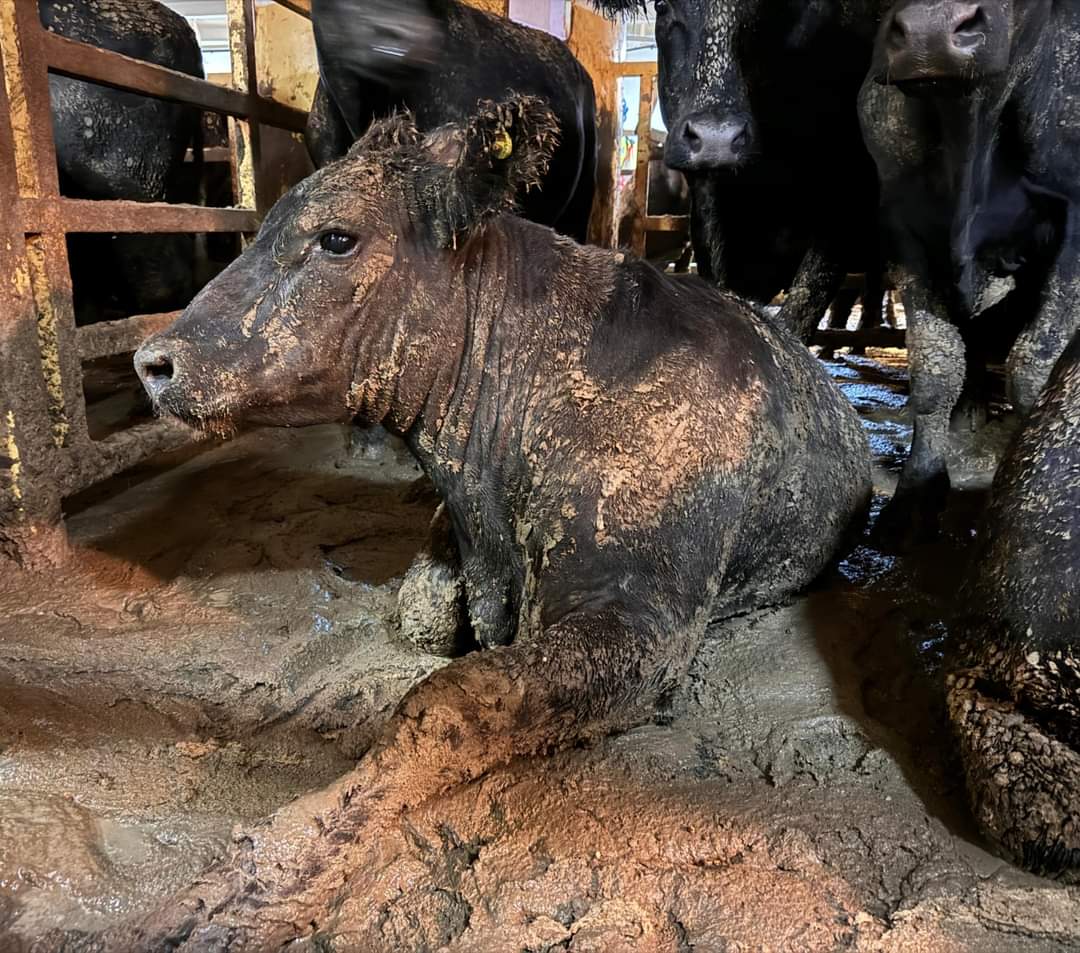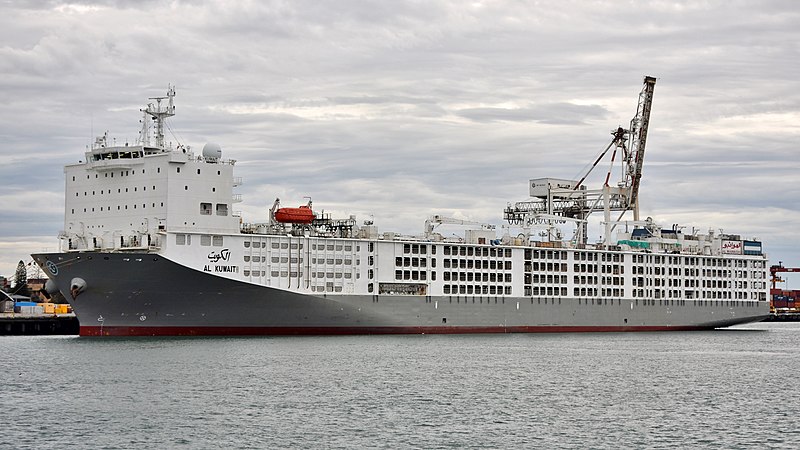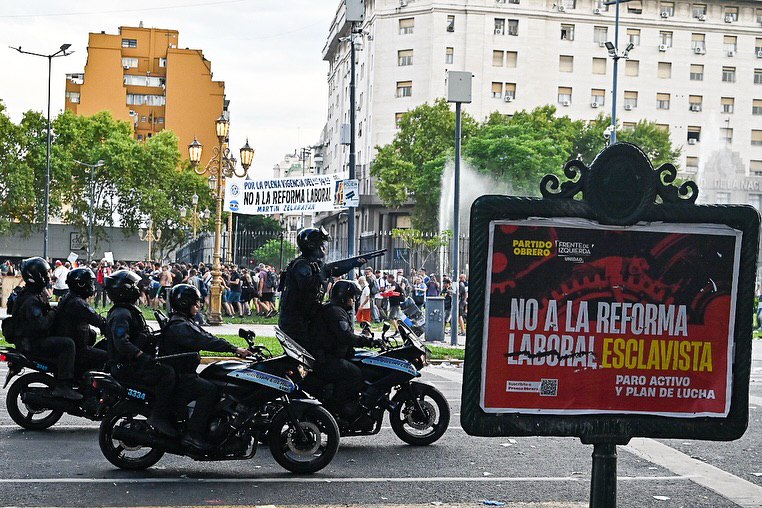The passage of a ship carrying 19,000 live cattle exported from Brazil to Iraq brought an “unimaginable stench” to Cape Town, the capital of South Africa, where the vessel made a refueling stop, as reported by newspaper The Guardian.
The National Council of Societies for the Prevention of Cruelty to Animals, a South African animal protection organization, boarded the vessel and found sick and dead cattle on board, describing the scene as “abominable.”
Social media posts and public navigation records indicate that the live cargo is Brazilian, originating from Rio Grande do Sul, and is being taken to Iraq. The animals were healthy before boarding. There is a standard procedure from the Ministry of Agriculture, Livestock, and Supply (MAPA), which only allows the cargo to depart if the sanitary conditions of both Brazil and the importing country are met.

According to data from the Vessel Finder portal, which offers public and real-time consultation on the position and routes of ships, the Al Kuwait left the Port of Rio Grande, in southern Brazil, on February 10th.
On the same day, Vinícius Reiter Pilz, partner of Estancia del Sur company, posted a video of the ship on LinkedIn and wrote: “Last week, we loaded 100% of Al Kuwait, the most modern and one of the largest cattle ships in the world”. “All supplies on the ship were sold by Estancia del Sur,” he added. Local sources confirmed to Repórter Brasil that the cargo came from this producer.
Estância Del Sur is headquartered in Capão do Leão, in the southern region of Rio Grande do Sul. On its Instagram page, images of previous live cargo shipments can be found, along with frequent announcements of interest in purchasing “export standard calves”.
The Pilz family also owns a famous restaurant in Porto Alegre, Parrilla del Sur, which serves grilled meat prepared in the Uruguayan style.
Contacted by Repórter Brasil via email, phone, and his companies, Pilz did not respond. Parrilla del Sur also did not comment. The space remains open for comments.
Export standard
The ship Al Kuwait departed for its final destination in Iraq on Wednesday morning (21). According to the Marine Traffic platform, which also provides real-time data on ships, there are at least another 13 days of travel to the port of Umm Qasr, in Iraq, where they will finally be sent for slaughter.
“Each cow produces an average of 30 kilograms of manure per day, but without a way to dispose of them, the animals have to live with feces and ammonia, a toxic substance present in urine,” explains George Sturaro, investigations manager ate Mercy For Animals. According to him, the main causes of death during the trips are respiratory infections and thermal stress.

According to Sturaro, the poor conditions are inherent to this export modality: “It’s a floating corral, there’s no way to ensure animal welfare,” he evaluates. According to photographic records obtained by Mercy for Animals, the animals were crowded amidst feces and urine.
Accidents
Based on data from the FAO (Food and Agriculture Organization of the United Nations), Mercy for Animals estimates that Brazil exports 300 thousand head of cattle annually by sea – making the country the second-largest exporter of live cattle in the world, accounting for 15% of international trade.
Live cattle exported by Brazil have been victims of at least two serious maritime accidents. In 2012, over 2,000 animals suffocated during the trip due to a ventilation system malfunction. Embarked from the Port of Vila do Conde, in Pará, the animals belonged to Minerva and were destined for Egypt.
In 2015, another ship with cattle supplied by Minerva sank at the cargo terminals of Vila do Conde. Most of the 5,000 cattle did not survive – many drowned or were trapped inside the vessel. The decomposition of the animals’ bodies and the leakage of oil from the ship caused an environmental disaster in the region.

